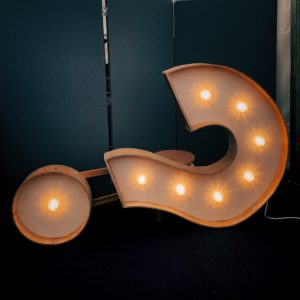When you’re learning a new language, you need to understand your target language. This language comprehension is much more than just excelling at listening exercises. You need to develop an ear for the language if you want to succeed. But, how do you improve your listening skills and master language comprehension? Learn some easy tricks you can use in your language learning.
Comprehension of the Sounds of the Language
Take this simple sentence, for example:
“This is my thumb. I point it at them.”
Why do the unique set of sounds that make up that sentence need to be written using those letters? And why is it that the sound “th” requires two letters? Why does the letter combination of “oi” in point make the sound it does? Even more curiously, why do we have two “th” sounds in English, with no single letter for either of them and a double-letter combination to represent both? Languages are funny that way.

The Same Words Often Sound Very Different
Confused? Stick out your thumb. Now say the word thumb. Point it at an imaginary “them.” Now say them. Notice the difference? The “th” in thumb is hard and clean. The “th” in them is softer, and almost has a rolling “zh” sound in it. You might notice that your mouth moves in different ways to produce each of those sounds.
Why is it that we say the word “button” as “bu’on”? What about the word “cupboard”? Why do we spell it one way and pronounce it as “cubberd”? Putting spelling aside for a moment, the reason all the statements above make sense to you is that you have “an ear” for the English language.
The Difficulty in Separating Words
But if you’ve ever tried to learn a new language, you’ve inevitably run into difficulty picking apart where one word ends and another begins. Even for native speakers of the English language, this can be a challenge. Take this example below:
“Excuse me while I kiss this guy.”
“Excuse me while I kiss the sky.”
The latter is a famous music lyric from Jimi Hendrix. The former is how about half the U.S. population hears that line. In fact, for a lot of native speakers of English, reading music lyrics is necessary in order to pick apart the unique sounds they are hearing.

And if that’s the case when native speakers engage with their own languages, why should it be any different when learning a new language? It’s not. So, if you’ve ever struggled to develop an ear for a new language, don’t worry. You’re not alone. The challenge isn’t unique to learners of a new language. It’s common among native speakers of their own languages as well.
How Do I Develop an Ear for a New Language?
How do you go about developing an ear for a new language you’re learning? The key is to get immediate feedback and understand exactly what you are hearing and what each sound is. Parents do this with small children all the time. For example:
Parent: Do you want a banana?
Child: Aa-na-nuh!
Parent: Ba-na-na?
Child: Banana!
Through slow, steady practice, parents help small children refine their pronunciation by developing an ear for the language. This is most often done by over-enunciating unique sounds to make contrast them from other sounds.
The Difference Between Adult and Child Language Comprehension
This is great if you’re a child. You have all the time in the world. And if you have a loving, nurturing teacher guiding you through every waking moment of your life, it’s not that hard either. But very few adult language learners have this luxury. Still, there are a number of ways to accomplish a similar result.
If you think about why the above method works, it’s because children get immediate feedback. And parents often follow that feedback with an explanation so their children can hear the individual sounds at a granular level.

There are a number of language-learning apps starting to do this. In some cases, there is a visualization that shows the sound pattern of a native speaker contrasted with your own sound pattern. In other cases, there’s some kind of score that shows how close to or far away you are from the native speaker’s pronunciation.
I’m a bit skeptical of both approaches, as they don’t work very well for me. I’ve never really felt comfortable modulating my voice in order to match a sound wave visualization. And I’ve never comprehended how a number can help me realize whether I heard and repeated a sound properly. That said, if these systems work for you, then keep using them.
Focus on the Alphabet When Learning a New Language
But what method do I use, then? And what strategy is available to the language learner using an approach that doesn’t employ the technology described above? Whenever I am diving into a new language or teaching someone a language I already speak, I spend a fair amount of time on the alphabet. And I focus a lot on vowels.
There are very few alphabets that perfectly replicate all the sounds in a given language. Anyone who has studied French knows there are many silent letters. Even in English, as I demonstrated at the top of this section, there are two “th” sounds, and the alphabet lacks a single letter to reflect either of them.
Still, we have to start somewhere. And the alphabet is a great place. Why do I spend so much time on vowels? It’s been my personal experience that consonants are more stable across human languages than vowel combinations. I don’t have any science or statistics handy to back up my claim, but that’s my opinion.
At the same time, vowels and combinations of vowels (sometimes referred to as “diphthongs”) can be a bit more unique and exotic. Take the Russian vowel “ы”, which is found in the formal word for “you” – Вы. This letter sounds a bit like the sequence of vowels found in the French word for “yes” – oui.
While it’s close, it’s not exact. And lots of Russian students have a hard time learning to make this sound perfectly. Even then, many Russian students have a hard time parsing all the unique vowel combinations that stem from Russian vowel endings. For example:
faster: быстрее » buistryeye
hers: её » yey-yo
beautiful: прекрасный » prekrasnuiyee
Those are Russian words in the examples above. However, the challenge applies to any language you might be learning, especially if you are just starting out.
Reading Improves Language Comprehension

Once I get a solid grasp of the alphabet, I make deliberate efforts to read my study materials while listening to the proper pronunciation of what I am reading. This works well if you have study materials that include audio files to go along with written content.
If you’re in a pinch, you might take advantage of Google Translate or similar technologies. The pronunciation may not always be perfect. However, it’s better than nothing and getting better all the time.
What tends to work for me is a combination of reading silently and reading out loud. Then I’ll listen to an audio file without reading. Afterward, I’ll listen to the audio file while reading, and try it again on my own.
This approach provides many of the benefits that children get when they are learning a language. By listening to audio while reading the written text, you can receive immediate feedback. You’ll learn where sounds start and end. And you’ll learn how they tie into the unique sequence of letters you are learning.
Foreign Language Comprehension is Just a Step Away
Learning to sing on pitch, play an instrument, knit a pair of socks, tie a knot, and hundreds of other skills requires us to develop a feel for the skill we’re developing. Whether it’s words or yarn, it takes time.
We tend to put time into activities we like. So, find combinations of language learning activities you enjoy and don’t worry. You’ll develop your ear for your language naturally. Probably without noticing, your comprehension of the spoken word will sharpen. Next, your pronunciation will improve… just as it did when you were a toddler learning your first language – English. And in no time, you’ll be fluent.







